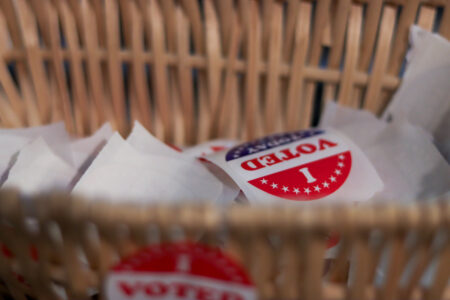War of rhetoric — America’s most dangerous fix
Addiction often begins with the promise of escape; a harmless experiment that becomes a habit, then a lifestyle, then a prison.
Drug dealers market their product by normalizing it in culture — through music, film, and television — until the damage feels inevitable and normal.
With a mixture of guilt, fear, and excitement, users continue their relationship with the drug. Each experience deepens the habit until it becomes an identity. This process is how people become addicted.
Of all the addictive substances, few are as addictive as war. Like any drug, it is habit-forming, destructive, and endlessly supplied to meet demand. It is insidiously pushed by a small group of masterminds who profit immensely from its sale. Properly understood, war is detestable in a civil society and should be rejected, even as a metaphor. Yet our leaders and influencers insist that we are “at war,” and all signs indicate we are on the verge of becoming addicted to it.
In August 2025, while standing with Texas Democrats who fled their state over a redistricting fight, New York Governor Kathy Hochul declared: “We are at war, and that’s why the gloves are off — and I say bring it on.” In December 2024, Senator Sheldon Whitehouse of Rhode Island urged his party to build a “war machine” to counter Republican messaging.
Republicans are equally bellicose. White House Deputy Chief of Staff Stephen Miller described Democrats as “evil” but promised his “side” would “prevail over the forces of wickedness.” Prime-time host Jesse Watters echoed the same language, “Whether we want to accept it or not, they are at war with us. And what are we going to do about it?”
From both ends of the political spectrum, faux hawks stir the partisan faithful into a warlike fervor, declaring the other side an enemy. Like any cartel, many of our leaders will sacrifice everything to feed the craving — compromise, civility, even the nation itself. Voices of moderation — like Ted Cruz or John Fetterman — barely register. Who listens to sobriety when the high is so intoxicating?
War, once injected into the body politic, becomes nearly impossible to quit. And unless we stage an intervention soon, this addiction will destroy the very democracy we claim to love.
If war is our narcotic, then unity is our rehabilitation. The dealers of division profit when we stay hooked on anger, but they lose power the moment we refuse their product. By grounding ourselves in community — in service, friendship, and common purpose — we rediscover the truth that Americans are not enemies, but partners in building a shared future. Sobriety from war rhetoric is possible if we choose connection over conflict, common ground over controversy, and compassion over combat. America is not a battlefield; it is home for all of us.
Elected leaders of our two-party system are not likely to decrease their divisive rhetoric for the same reason cartels won’t stop trafficking drugs: it’s too profitable for them. The good news is that we can stage an intervention without them. It won’t come from politicians or media who profit from our division. It must come from us. Community is the answer. Each act of service, each conversation held in good faith, each bridge built between communities weakens the grip of division. By rejecting the narrative of endless war and choosing to invest in one another, we can detox our democracy and restore its health. We already know how to do these things; they are the foundation of every meaningful relationship we have.
Stepping away from division in favor of unity is not the same as acquiescing to other points of view. Respectfully listening to others is only “surrender” if they were viewed as “enemies” in the first place. The goal is not to persuade or be persuaded, but to listen with intent, assume the best in each other, and prioritize common values over exaggerated differences.
Community organizations all over America are proving each day that common purpose prevails over childish politics. Rotary Club, Kiwanis, Knights of Columbus, Parent-Teacher Associations, Masons, Elks, American Legion, Veterans of Foreign Wars, Scouts, Church groups, 4-H, Habitat for Humanity, United Way, Future Farmers of America, and countless other groups are living examples of Americans working together every day without any regard for their political affiliations to make their communities a better place. Service in the community quickly reveals that the narrative of division is a lie.
When we stop believing the false narrative of the partisan pushers, we stop being users, and we become human again. America doesn’t need war — it needs a neighborhood.
——-
Matthew Peterson served as the
commandant of the Iowa Veterans Home from 2021 to 2022. He currently resides in Texas.

